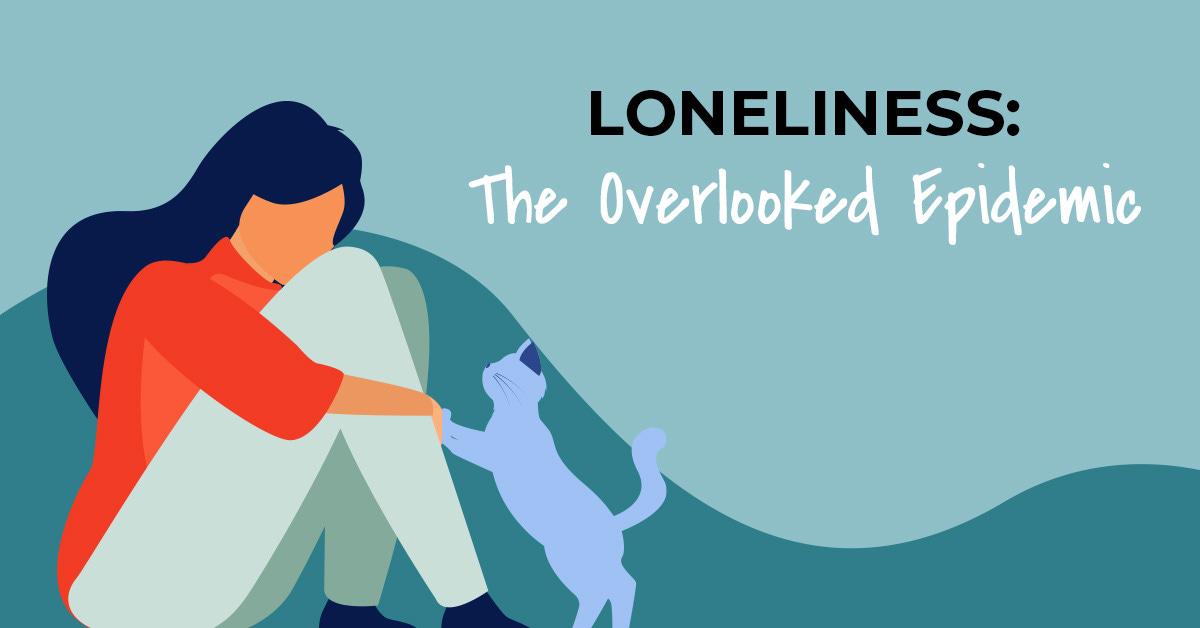The Loneliness Epidemic
Part I: Solving the Loneliness Epidemic
🤓 Bite-Sized Knurd: The pandemic didn’t cause it, but loneliness is at historical highs. Recognizing we are in a loneliness epidemic is the first step.
Read on for more…
We are in year three of a global pandemic that has forced us to isolate, to limit our travel and time with people.
In those circumstances, it’s a no-brainer that our society is suffering from a Loneliness Epidemic. But it might surprise you to know this epidemic has been rampant long before COVID. Before the pandemic:
- 58% of US Americans felt like no one knows them well
- 49% sometimes or always lack companionship
- 61% felt lonely in 2019
While the pandemic exacerbated a problem, loneliness is much more endemic than the disruption from a deadly disease.

What is Loneliness?
First, let’s address what loneliness is and isn't.
In the simplest form, loneliness is a feeling that you have no one to connect with personally who understands you and really sees you.
Loneliness is not about being alone. In fact, many very social people can experience serious loneliness. Have you ever been in a crowded room and felt lonely? Even that friend that constantly fills their days with events, workouts, parties, and dinners can still feel a deep sense of loneliness (if you’re that friend, I see you).
Loneliness arises when people experience a mismatch between their desired and actual social relationships.
The Unseen Harms
Despite loneliness being seemingly invisible, it can have serious harm to us and our bodies. Mental health is just as important as physical health because mental health causes physical health.
Loneliness can raise a person’s risk of death by 45% – more than air pollution, obesity, or alcohol abuse. The invisible mental health problems have a huge impact on our lives including:
- Altered brain function
- Decreased memory and learning
- Cardiovascular disease or stroke
- Alzheimer’s
- Increased substance abuse
Take a second to imagine a society full of lonely people. With altered brain function, we are unable to make rational decisions and create good change.
Loneliness Is Universal
And while some people are more prone to loneliness due to their circumstances, no demographic is saved from loneliness in the US.
- More men have felt lonely during the pandemic than women (63% vs. 58%)
- Gen Z is the loneliest generation (65%)
- Loneliness is high across all incomes (47-58%)
- 37% of Black people have no close friends compared to 17% of whites and 28% of Hispanics
So a silver lining is that no one is alone in their loneliness.
You are not alone.
And if we’re not alone, then that means we can work together to build deeper human connection.
Next Week: How our digital lives have exacerbated our loneliness
The Good Knurd:
Now's your chance to join in on the action! Thoughtful ways to influence change within yourself and your local community.
- 🤔 Thought Starter: Ask yourself, do you feel lonely? If so, explore what emotions are coming up and when the sense of loneliness is strongest? It might be an uncomfortable feeling, but being in tune with your feelings will only help you balance them.
- 🫂 Community: Practice gratitude. It may sound trivial, but finding small things to be grateful for is so powerful. I live next to Golden Gate Park. I practice gratitude every time I see colorful birds playing in the air or kids squealing for joyriding their new bicycles.
How has loneliness impacted you? What are you grateful for? We’d love to hear your thoughts!
Next Up
the roots of change media Newsletter
Join the newsletter to receive the latest updates in your inbox.




